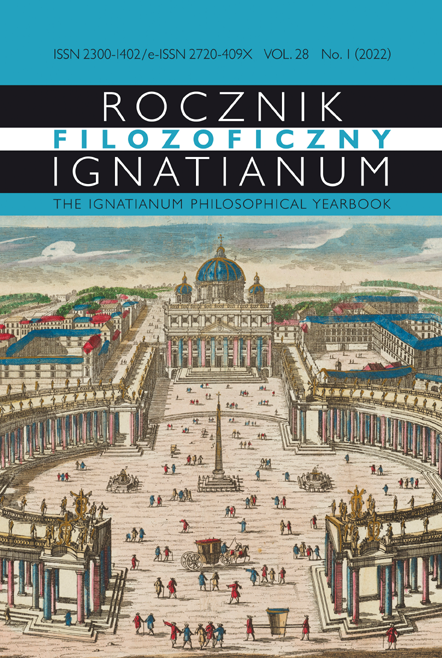Tajemnice dyplomacji watykańskiej – udział nuncjusza Giovanniego Antonia Davii w elekcji Fryderyka Augusta Wettyna na króla Polski
Abstract
Celem artykułu jest ukazanie roli, jaką w elekcji w 1697 r. odegrał nuncjusz Giovanni Antonio Davia. Artykuł napisano na podstawie wydanej i niewy- danej korespondencji nuncjusza Davii z sekretariatem stanu, znajdującej się w Archiwum Watykańskim i Bibliotece Watykańskiej. Po śmierci króla Jana III Sobieskiego elekcja, jaka odbyła się w 1697 r., należała do naj- bardziej skorumpowanych. Wśród szeregu kandydatów najpoważniejsze szanse zdobycia korony mieli syn króla Jana III, Jakub i Ludwik de Bourbon, książę de Conti. Ku zaskoczeniu zgromadzonej na polu elekcyjnym szlachty w ostatnim momencie zgłoszono kandydaturę elektora protestanckiej Saksonii, Fryderyka Augusta Wettyna, który wcześniej dokonał potajemnej konwersji na katolicyzm. Aby dopełnić formalności konwersję Fryderyka Augusta na katolicyzm, zachowywaną od 2 czerwca 1697 r. w sekrecie, musiał uwierzytelnić nuncjusz Davia. Nuncjusz nie uległ naciskom zwolen- ników francuskiej kandydatury dążących do zablokowania elekcji Wettyna i wydał opinię o jej ważności. Z tego powodu został oskarżony przez przeciwników Wettyna o działania niezgodne z prawem, jak również kie- rowanie się prywatnym interesem, gdyż nuncjusz Davia wstawiennictwu Fryderyka Augusta zawdzięczał uwolnienie bratanka z niewoli tureckiej. Należy stwierdzić, iż na skutek splotu różnych okoliczności arcybiskup Davia musiał wystapić w Warszawie w roli, jakiej nie przewidywano dla papieskiego nuncjusza, to znaczy przedstawiciela papieża zachowujące- go wobec wewnętrznych konfliktów neutralne stanowisko. Kandydatura, a następnie konwersja na katolicyzm władcy Saksonii zmusiła nuncjusza do podjęcia działań z jednej strony chwalonych przez stronników saskich, a z drugiej kontestowanych przez zwolenników obozu francuskiego. Wbrew jednak oskarżeniom wysuwanym przez tych ostatnich można się skłonić do sądu, że to nie prywatne motywy, lecz interes Kościoła katolickiego skłoniły nuncjusza do uwierzytelnienia konwersji Fryderyka Augusta Wet- tyna na katolicyzm.
Literaturhinweise
ASV (Archivio Segreto Vaticano, obecnie Archivio Apostolico Vaticano), Segr. Stato, Polonia 112.
ASV (Archivio Segreto Vaticano, obecnie Archivio Apostolico Vaticano), Segr. Stato, Polonia 117.
ASV (Archivio Segreto Vaticano, obecnie Archivio Apostolico Vaticano), Segr. Stato, Polonia 118.
ASV (Archivio Segreto Vaticano, obecnie Archivio Apostolico Vaticano), Segr. Stato, Polonia 355.
BAV (Biblioteca Apostolica Vaticana), Barberini latini 6672.
Biblioteka Jagiellońska, rkps. 2275 AA VII 52, Anonim Otwinowski, „Dzieje Polski pod panowaniem Augusta II”.
Acta Nuntiaturae Polonae, t. 37, Giovanni Antonio Davia (1696-1700), t. 1 (13 II 1696–28 XII 1696), ed. A(dalbertus) Kęder (Cracoviae: Academia Polona Litterarum et Scientiarum, 2004).
Brizzi G., „Davia, Famiglia”, w: DBI (Dizionario Biografico degli Italiani), t. 33 (Romae: Istituto dell’ Enciclopedia Italiana, 1987).
Campagne del principe Eugenio di Savoia. Opera pubblicata dalla Divisione sto- lica militarne dell’I.R. Archivio di guerra in baase a documenti officiali e ad altri fonti autentiche, t. 4, Guerra per la successione di Spagna, red. Leandro Enrico Wetzer (Torino: L. Roux, 1892), 310–313.
Coufalová Iveta, “Saský Hercules a Lutherova růže – Konverze Augusta Silného a Saská konfesijní kulturana telomu 17. a 18”, w: Proměny konfesijní kultury, Metody – témata – otázky, red. H. Ferencová et al. (Olomouc: Univerzita Palackého, 2015), 73–85.
Jasienica Paweł, Rzeczpospolita obojga narodów. Dzieje agonii (Warszawa: Pań- stwowy Instytut Wydawniczy, 1985).
Konopczyński Władysław, Dzieje Polski nowożytnej, t. 2 (Warszawa: Wydaw- nictwo PAX 1986).
Staszewski Jacek, „Unia polsko-saska z perspektywy trzystu lat, Rzeczpospolita wielu narodów i jej tradycje”, w: Rzeczpospolita wielu narodów i jej trady- cje: materiały z konferencji „Trzysta lat od początku unii polsko-saskiej”, red. Józef Andrzej Gierowski, Andrzej Link-Lenczowski, Mariusz Markiewicz (Kraków: Towarzystwo Wydawnicze „Historia Iagiellonica”, 1999), 15–16.
Kęder Wojciech, „Kardynał Giovanni Antonio de Via (Gianantonio de Via) – nuncjusz w Rzeczypospolitej (1696–1700)”, Studia Sandomierskie 26 (2019): 37–50.
Staszewski Jacek, „Elekcja 1697 roku”, Acta Universitatis Nicolai Copernici. Histo- ria 28/259 (1993): 73–74.
Copyright (c) 2022 Akademia Ignatianum w Krakowie

Dieses Werk steht unter der Lizenz Creative Commons Namensnennung - Keine Bearbeitungen 4.0 International.
Rocznik przyjmuje do druku wyłącznie materiały, które nie wchodzą w żaden konflikt interesów, żaden konflikt z prawem autorskim itp. Redakcja prowadzi działania przeciw: plagiatom, ghostwriting1, guest/honorary authorship2 itp. Autor pracy zbiorowej, który jest pierwszy na liście, bierze na siebie odpowiedzialność i ma obowiązek przedstawić wkład wszystkich współautorów. Jeśli publikacja powstała dzięki dedykowanym środkom finansowym, należy ujawnić to np. w Podziękowaniu, przypisie itp. Ew. przedruki wymagają jawnego zgłoszenia i okazania odpowiedniego pozwolenia wydawniczego. Autorzy / Recenzenci nierzetelni narażają się na reakcję właściwą stosownym instytucjom.
______
1 Ma to miejsce, gdy osoba mająca istotny wkład jest pominięta na liście Autorów czy w Podziękowaniu.
2 Zachodzi, gdy na liście autorskiej pojawia się osoba mająca znikomy/żaden udział w pracy.





